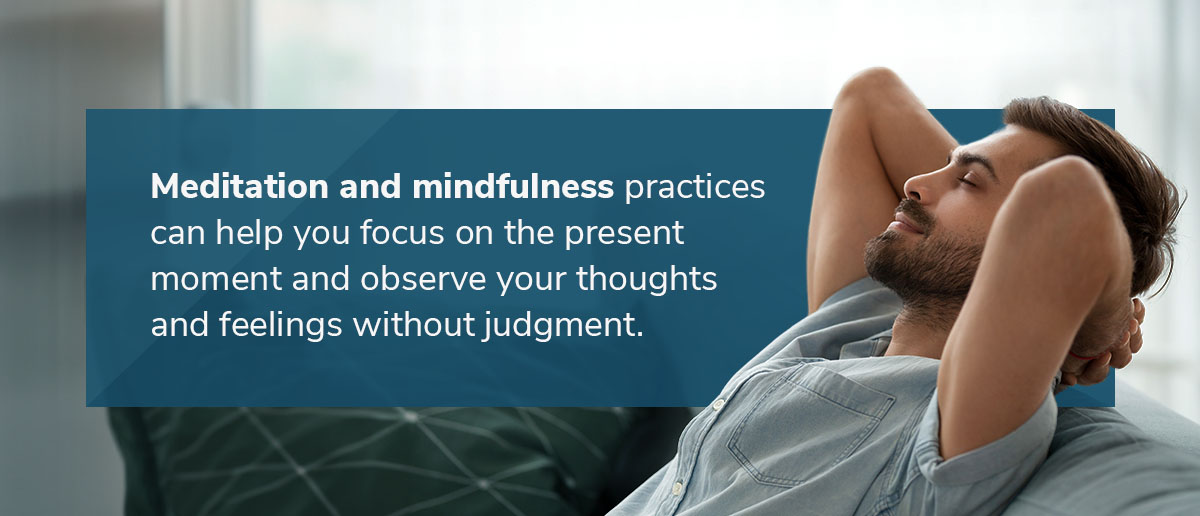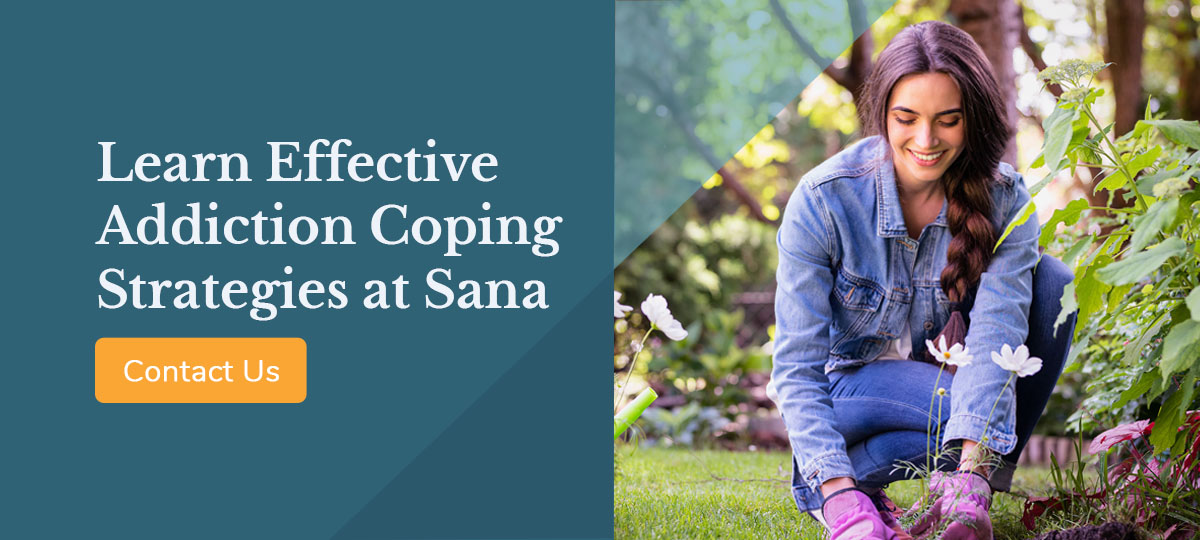Understanding how to fight addiction urges can help you maintain long-term sobriety. Helpful coping strategies such as avoiding triggers, distracting yourself with new hobbies, joining a supportive community, and attending therapy sessions are effective ways to rewire your brain and focus on the things that make you happy. With the right support system and coping strategies, you can build an exciting, fulfilling life apart from drugs and alcohol.
The Cause of Cravings and the Importance of Healthy Coping Skills
Cravings occur because your brain seeks ways to release dopamine, a neurotransmitter responsible for feelings of pleasure and motivation. Substances release a strong amount of dopamine, increasing the brain’s need for satisfaction. Low dopamine levels, stressful events, and emotional challenges can increase your desire to use a substance because your brain seeks ways to numb negative feelings. Healthy recovery coping strategies for addiction are important because they help rewire your brain to find relief without drugs or alcohol.
Effective Coping Skills for Substance Abuse
Managing drug cravings is one of the most important parts of a substance abuse recovery plan, and learning new coping skills for addiction can help you shift your focus from your cravings to new, hopeful thought patterns. If you want to learn new ways to reduce or work through cravings, consider the following coping skills for recovering individuals:
Fill Your Schedule
Keeping busy with healthy, fulfilling habits is an excellent way to distract your mind from substance cravings. Engaging in your favorite activities, trying new hobbies, and learning new skills can help shift your focus to what’s most important to you and what makes you happy.
The more you fill your time with fun or meaningful activities, the less time and energy you have to focus on cravings and the factors that trigger your cravings. You can get creative and choose activities that you’re most passionate about, but consider these ideas if you need a starting point:
- Start a local hiking group.
- Try a pottery or art class.
- Write a short story or novel.
- Start small woodworking projects.
- Plan an international trip.
- Join a local sports team.
- Plant a garden.
- Take a dance class.
- Start or join a tabletop gaming group.
- Volunteer in your community or surrounding communities.
Journal Your Thoughts and Practice Gratitude
Journaling your thoughts is an excellent way to work through challenging emotions when you feel tempted to numb yourself with drugs or alcohol. Keep a notebook with you to write a little each day, or use online journal prompts and writing exercises to explore your feelings. Writing a daily or weekly gratitude list is also a fantastic way to cope with emotions because it helps you focus on the positives in your life.
Recall Positive Times
It’s important to recall positive times and moments of clarity when a craving arises. Think back on a time when you decided to avoid substances or experienced a breakthrough in your recovery. Reflect on the positive outcomes that came about since you started the recovery process, and recognize how far you’ve come in your journey.
Remind Yourself of the Costs and Benefits
It’s also helpful to remember the benefits of abstaining from drug or alcohol use and the costs of using a substance. Write down all the good things you can look forward to when you choose to avoid substances, and list all of the consequences if you indulge in a craving. This practice helps put situations into perspective so you can stay on track with your sobriety goals.
Remember That Cravings Are Temporary
While cravings can be intense, they eventually end. Remind yourself that they are temporary, and find hope in that. Set a time for 30 minutes to an hour, and notice how your craving changes over short time intervals.
If a craving persists, you can also delay indulgence by a few hours or a day to prove to yourself that you can avoid the substance. This helps empower you and gives you the motivation to continue resisting cravings. For example, resisting the craving for an hour gives you the confidence to resist it for a day, and the days gradually add up to full weeks of abstaining until you have several months or years of sobriety.
Try Mindfulness, Meditation, or Breathing Exercises

Meditation and mindfulness practices can help you focus on the present moment and observe your thoughts and feelings without judgment. These practices help relax your mind, bringing you mental clarity and stress relief to resist cravings. Deep breathing is also helpful because it relaxes your nervous system, easing anxiety and uncomfortable emotions.
Talk to a Therapist
Talking to a therapist is an opportunity to work through your thoughts and emotions with a licensed professional. A therapist can help you build emotional resilience and learn coping skills for triggers through evidence-based behavioral therapies such as the following:
- Cognitive behavioral therapy (CBT)
- Dialectic behavioral therapy (DBT)
- Motivational enhancement therapy (MET)
- Acceptance and commitment therapy (ACT)
- Trauma-informed care (TIC)
- Stress reduction and resiliency-building exercises
Attend a Support Group
Support groups are incredibly helpful because they connect you to others with the same or similar goals as you. A social network such as a 12-step group serves as a community that fosters a sense of understanding, compassion, empathy, and fellowship. When you join a 12-step group and attend regular meetings, you can find inspiration and hope in others’ stories and use your experience to help others as well.
Connecting with a sponsor from your support group is also essential because you can reach out to them for support when you need help working through a craving. Simply talking to your sponsor or sharing your challenges in a meeting can help ease cravings, and your sponsor can share their personal coping strategies with you.
Exercise
While the brain often releases dopamine when we indulge in activities such as substance use, shopping, gambling, or eating junk food, exercise can also increase dopamine release.
Exercise is one of the healthiest ways to boost dopamine because it benefits mental and physical health. A quick jog around the block, walk through the park, yoga session in your living room, or weight-lifting session at the gym can give your brain the dopamine boost it seeks during a craving. You can also engage in group recreational sports or try something new, like snowshoeing.
Avoid Triggers
Avoiding triggers is one of the most important ways to reduce cravings and prevent relapse. You may need to replace friend groups, set boundaries with certain family members, find new places to spend your free time, and reduce stressful situations. This helps with relapse prevention.
If your previous friend group drank or used drugs on the weekends, consider visiting a coffee shop with fellow support group members instead. If certain family members cause you stress, limit your time with them. Each small change can help you reduce triggers and minimize cravings.
Complete the ABC Exercise
The ABC exercise involves analyzing an activating event, beliefs, and consequences (ABC) surrounding a craving. This practice can help you cope with cravings by challenging the following factors:
- Activating event: An activating event is a situation or occurrence that triggers a craving. First, identify the activating event that’s making you want to use a substance.
- Beliefs: Next, reflect on your thoughts about the craving. These are your temporary beliefs about it.
- Consequences: Consequences are the behavioral and emotional results stemming from your beliefs.
After identifying the activating event, beliefs, and consequences, you can replace them. For example, you can remind yourself that you don’t need to drink to have fun with friends, your craving can’t harm you, and your craving will pass if you avoid indulging in it.
Learn Effective Addiction Coping Strategies at Sana
Learning how to stop craving drugs and alcohol is a process, and equipping yourself with new coping mechanisms and strategies can help you reduce cravings and turn to healthy alternatives. Sana at Stowe offers holistic addiction treatment programs to help you heal and rewire your brain during your recovery journey.
We offer a wide variety of treatments to provide individualized therapy that meets your unique needs. From evidence-based behavioral therapies and nutritional guidance to 12-step facilitation and MAT, Sana at Stowe strives to support you physically, mentally, and emotionally. Contact us to learn more about how we can help you recover, develop effective coping strategies, and reduce cravings.
Sana is Here to Help
Sana is here for you and your loved ones. Sana at Stowe provides high-quality treatment for those struggling with substance abuse, alcohol addiction, trauma, and PTSD. Our compassionate and professional staff is dedicated to giving our patients the recovery experience they deserve in a safe and healing environment. To learn more or to get started on your journey to recovery today, give us a call or visit our contact form.
Click here to call us: 866-575-9958



